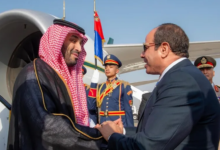Islamic banking in Russia is an experiment at the beginning of its journey

In Russia, a pilot project for Islamic banking services has been initiated, as announced by the Central Bank of Russia, starting from September 1, 2023, in Muslim-majority regions such as Chechnya, Dagestan, Bashkortostan, and Tatarstan within the Russian Federation.
Recently, Sberbank (the largest bank in Russia and Eastern Europe) and other Russian banks announced the opening of “Islamic branches” to bolster Islamic banking services in Chechnya and Tatarstan. More banks are expected to join this initiative, which was signed into law by Russian President Vladimir Putin and is scheduled to run until September 1, 2025.
These services, under the law, include various prohibitions and restrictions, such as the prohibition of interest-based transactions (usury) and transactions involving uncertainty (gharar), and impose bans on funding specific sectors strictly defined by the economy: gambling, pork production, tobacco and alcohol beverages, arms and ammunition trade, among others.
According to initial estimates by Sberbank, Islamic finance in Russia could reach $25 million in the first three years, with more optimistic projections exceeding $60 million, given the participation of state bodies, financial and credit organizations, and major corporations.
It is estimated that around 7 million people in Russia could potentially become consumers of Islamic banking services, according to Anatoly Aksakov, Chairman of the Duma Committee on Financial Markets, speaking at the “Russia-Islamic World” forum held in Kazan last month.
The expansion of this trial includes the recent launch of the first “Halal card” in Russia in May last year, aimed at providing “Halal cashback.” This financial mechanism ensures that funds come not from bank profits but from specific programs and projects, aligning with Islamic law.
Economist Victor Lashon highlights the significant difference between Halal cashback and conventional cashback, noting its compliance with Islamic principles. He further emphasizes the potential economic impact of Islamic finance development in Russia, potentially attracting up to $14 billion in Islamic investments, helping to fill gaps left by Western financing due to sanctions.
Moreover, international economist Slavat Yusupov anticipates that by September next year, decisions may be made to expand legal frameworks for Islamic finance to other regions of Russia, possibly leading to the establishment of comprehensive legislation on Islamic finance (partnerships) in the country.
However, he underscores the absence of unified standards for Islamic banking services in the market presently, stressing the need for clear regulations to avoid pitfalls for users of this channel.
The development of new financial institutions is expected to attract more capital from the public, including those who save money for religious reasons, thereby stimulating the Russian economy.
These steps are part of efforts to strengthen economic ties with the Middle East and Asia, enhancing international and domestic financial flows that support the Russian economy amidst current challenges.








